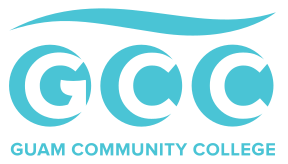Early childhood pertains to children age eight and below. Early childhood educators work in Head Start programs, childcare centers, family home care programs, elementary schools, social services programs, and health care services. These professionals plan and implement appropriate experiences for young children in areas such as language, health, movement, creativity, cognitive, self-concept and social behavior. They also supervise children’s activities, care for their needs, keep records of their progress, and confer with parents and other professionals.
The Associate of Science in Early Childhood Education is closely aligned with national standards and meets the education requirements for Basic Educator Preschool Certification from the Guam Commission for Educator Certification. The National Association for the Education of Young Children encourages a minimal educational level of an associate degree in early childhood education for early childhood program teachers. A grade of “C” or higher must be achieved for the Program’s “Major” courses.
Program Student Learning Outcomes (SLOs):
Upon successful completion of the AS in Early Childhood, students will be able to:
Course Sequence by Semester
The Associate of Science in Early Childhood Education is closely aligned with national standards and meets the education requirements for Basic Educator Preschool Certification from the Guam Commission for Educator Certification. The National Association for the Education of Young Children encourages a minimal educational level of an associate degree in early childhood education for early childhood program teachers. A grade of “C” or higher must be achieved for the Program’s “Major” courses.
Program Student Learning Outcomes (SLOs):
Upon successful completion of the AS in Early Childhood, students will be able to:
- Model appropriate practices for children, professionalism, and demonstrate ethical conduct based on guidelines from the National Association for the Education of Young Children (NAEYC).
- Implement various developmentally and age-appropriate teaching, assessment and guidance strategies needed to work with young children from birth to age eight.
- Reflect on practices, pedagogy and resources used in early childhood settings that serve children age’s birth through age eight years.
| General Education Requirements | ||
| Course | Course Name | Credits |
| English (Choose 1) | ||
| EN110A | Freshman Composition with Instructional Lab | 4 |
| EN110 | Freshman Composition | 3 |
| Course | Mathematics (Choose One) | Credits |
| MA110A | Finite Mathematics | 3 |
| MA115 | Fundamentals of College Algebra | 3 |
| MA161A | College Algebra & Trigonometry I | 3 |
| Course | Literacy for Life (Choose One) | Credits |
| CO110 | Critical Thinking for Civic Engagement | 3 |
| CS151 | Windows Applications | 3 |
| CS152 | Macintosh Applications | 3 |
| Social & Behavioral Sciences Requirement (Choose One) |
3 | |
| Humanities & Fine Arts Requirement (Choose One) |
3-4 | |
| SI___ | Natural & Physical Sciences Requirement (Choose One) |
4 |
| Major Requirements | ||
| Course | Course Name | Credits |
| CD110 OR ED150 | Introduction to Early Childhood OR Introduction to Teaching | 3 |
| CD221 OR ED220 | Child Growth & Development OR Human Growth & Development | 3 |
| CD140 | Nutrition and Physical Health | 3 |
| CD180 | Language Arts Development in Early Childhood | 3 |
| CD240 | Cognitive & Creative Development in Early Childhood | 3 |
| CD260 | Social & Emotional Development | 3 |
| ED231 | Introduction to Exceptionalities | 3 |
| ED265 | Culture and education in Guam | 3 |
| CD292 OR CD293 | Early Childhood Education Practicum OR Early Childhood CDA Practicum | 3 OR 12 |
| List Electives Courses (or provide category, optional) include total: (5-14) **Important Note: Students who choose CD293 need (5) elective credits; students who choose CD292 need (14) elective credits. |
||
| ASL100 | American Sign Language I | 4 |
| ASL110 | American Sign Language II | 4 |
| ASL120 | American sign Language III | 4 |
| ASL130 | American Sign Language IV | 4 |
| CD285 | Childcare Management | 3 |
| CH110 | CHamoru I | 4 |
| CH111 | CHamoru II | 4 |
| CH200 | Immersion Methods for CHamoru Language Teaching | 3 |
| ED150 | Introduction to Teaching | 3 |
| ED180A | Educational Methods I | 3 |
| ED220 | Human Growth & Development | 3 |
| ED292 | Education Practicum | 3 |
| CTE299A | PRAXIS I Review Part A | 2 |
| CTE299B | PRAXIS I Review Part B | 1 |
| HL135 | Heartsaver First Aid CPR | 1 |
| Program Total | 60-61 | |
Course Sequence by Semester
| Year 1 | |||||
| Semester 1 | Semester 2 | ||||
| Course # | Course Name | Credits | Course # | Course Name | Credits |
| EN110 OR EN111 | Freshman Composition OR Writing for Research | 3 | CD110 OR ED150 |
Introduction to Early Childhood Education OR Introduction to Teaching |
3 |
| MA110A OR MA115 OR MA161A |
Finite Mathematics OR Fundamentals of College Algebra OR College Algebra & Trigonometry I |
3 | CD221 OR ED220 |
Child Growth & Development OR Human Growth & Development |
3 |
| Humanities or Fine Arts | 3-4 | CD140 | Nutrition and Physical Health | 3 | |
| Elective | 3-4 | Social/Behavioral Science | 3 | ||
| Total | 12-14 | Total | 12 | ||
| Year 2 | |||||
| Semester 3 | Semester 4 | ||||
| Course # | Course Name | Credits | Course # | Course Name | Credits |
| CD240 | Cognitive & Creative Development in Early Childhood | 3 | ED265 | Culture and Education in Guam | 3 |
| CD180 | Language Arts Development in Early Childhood | 3 | ED231 | Introduction to Exceptionalities | 3 |
| Literacy for Life | 3 | CD260 | Social & Emotional Development | 3 | |
| Science with Lab | 4 | Elective (Only for students who are taking CD292) | 3-4 | ||
| Elective | 3-4 | Elective (Only for students who are taking CD292) | 3-4 | ||
| Total | 16-17 | Total | 15-17 | ||
| Semester 5 | |||||
| Course # | Course Name | Credits | |||
| CD292 OR CD293 |
Practicum OR CDA Practicum | 3 OR 12 | |||
| Elective (Only for students who are taking CD292) | 3 | ||||
| Total | 6-12 | ||||
| PROGRAM TOTAL | 60-61 | ||||
Category


